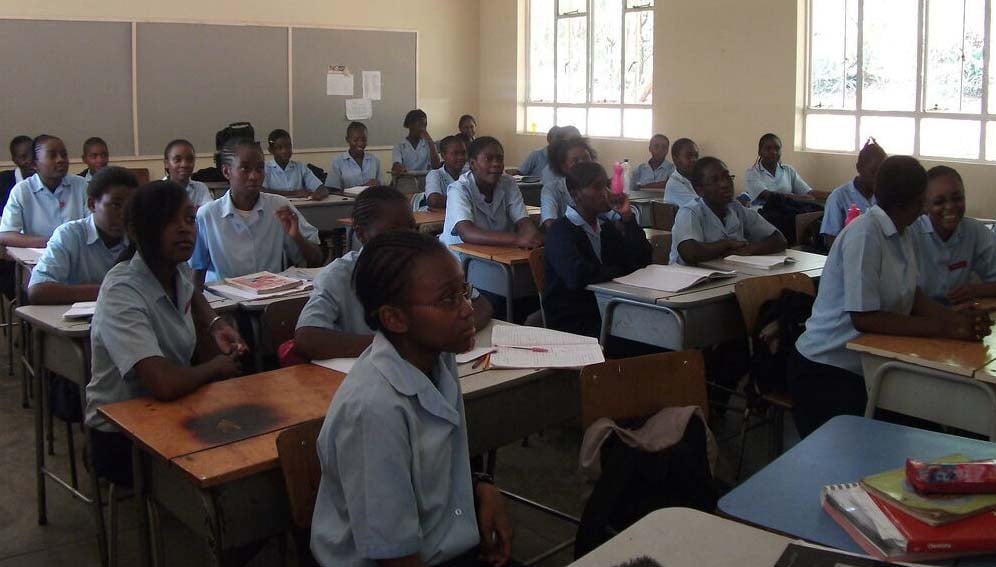23/09/25
AI careers advisor helps students find ‘hidden talents’

Send to a friend
The details you provide on this page will not be used to send unsolicited email, and will not be sold to a 3rd party. See privacy policy.
[DOUALA, SciDev.Net] In Cameroon, as in many low-resource settings, further education and careers guidance for students is rarely a top priority.
“As a teacher and mathematician, I saw many students struggle because they lacked proper academic guidance,” says Frédéric Ngaba, a researcher in artificial intelligence (AI) with a PhD in analytical mathematics from the University of Yaoundé I.
To address this gap, Ngaba created School Guidance via Artificial Intelligence, or OSIA, an AI platform to help Cameroonian students make better academic and career choices.
“With a team of professionals, using new technology, we built a solution that matches our local realities.”
Frédéric Ngaba, AI researcher, OSIA developer
“With a team of professionals, using new technology, we built a solution that matches our local realities,” Ngaba told SciDev.Net.
OSIA offers students a virtual tutor, who is trained on Cameroon’s education programmes and can interact in 20 languages.
Students have access to a bank of over 400 exam-type tests from leading schools, compiled with the support of the Cameroon Baccalaureate Office and the General Certificate of Education.
They can also input their annual grades and aspirations, and complete a psychometric test, which the AI tool analyses to create an academic profile to guide their future choices.
“This step helps identify the child’s hidden talent and the best ways to nurture it at school and at home,” explains Ngaba.
Subscriptions cost 3,000 CFA francs (US$5) a year for Cameroonians and €10 for students living abroad.
Ngaba says OSIA already has 13,500 subscribers across 23 schools and he wants to multiply that tenfold.
Backed by awards from the World Bank, Orange Cameroon, and Awiti in Morocco, Ngaba hopes to expand the platform to continue to improve educational opportunities for young Cameroonians.
According to the National Institute of Statistics, Cameroon’s education system faces pressing challenges. In 2022, about 27 per cent (8 million) of its 30 million-strong population were in school.
Yet the baccalaureate success rate was just 47 per cent in 2025, down from 37 per cent in 2024, official figures show.
Funding shortages, administrative burdens, and a lack of qualified local personnel make it a challenging context for further education and careers guidance.
Threat to humans?
Ngaba points out that his AI platform is not intended to replace existing guidance counsellors, but to “improve and personalise the school guidance system, which is obsolete in Cameroon”.
Maïmouna Moussa, who has been a guidance counsellor for seven years at the Lycée d’Oyack in Douala, tells SciDev.Net: “My fellow teachers think that they can do our job. And worse, there are no designated time slots in the timetables for us.”
She says OSIA is a helpful tool, which saves her time and the system money. But she insists it cannot replace human interaction.
“AI cannot create a deep emotional connection with the student,” she says.
“Nor can it master a patient’s medical history and provide adequate follow-ups during a psychometric interview.”
Alain Mbongo, a teacher at Alfred Saker College in Douala, agrees. He sees education and careers guidance as “a long process that takes into account the opinions of teachers, parents, and social interactions; something AI doesn’t necessarily do”.
In the absence of any national framework to regulate AI, the Secretariat for secular private education for the Centre region (SEDUC) has authorised OSIA to operate.
“As we have observed, the tool is improving and will continue to improve academic guidance for secondary school students,” said Lazare Tsimi, head of SEDUC, adding that he expected the benefits to extend to the whole Cameroonian education system.
A national AI strategy document was drafted during the National Consultations on AI held in Yaoundé, the country’s political capital, in July, to be put before the Cameroonian parliament.
This piece was produced by SciDev.Net’s Sub-Saharan Africa French desk.

